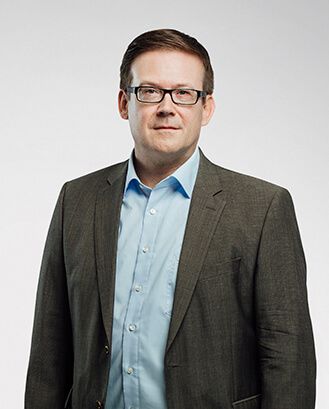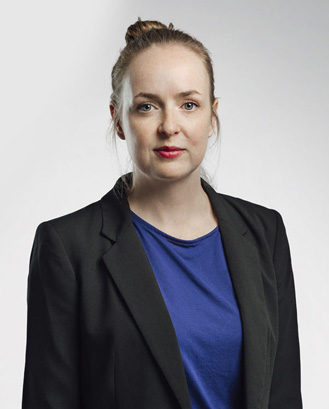Representation of victims
At any time, one can become a victim of a crime. The aggrieved persons frequently feel left alone with their problems and questions. In many cases the crime affects more than one area of life. Consequently, various fields of law apply. In this difficult situation our specialized law firm acts in several ways. Depending on the circumstances of the case, the individual will be advised and represented by one or more of our attorneys. A selection of our legal services is listed below.
Route to professional help
Most importantly, the consequences of the crime must be assessed in order to the establish the best possible support structure. We connect the individual with third parties specialized on victim support, such as doctors, psychologists focused on trauma-therapy, professional evaluators for loss assessment, police representatives for victim protection as well as specialized NGO’s.
Consultation on possible claims
We advise our clients on possible claims and whether they can be enforced effectively. Initially, the victim is entitled to claims against the perpetrator. This includes not only damages or compensation for pain and suffering (more information can be found under “Tort law”), but also prohibitory injunctions. In the context of stalking, for example, the stalker can be restrained from approaching the victim. Under certain requirements, a victim can further be entitled to claims arising from the Crime Victims Compensation Act. If applicable, we enforce your claim in extra-judicial or judicial proceedings.
Private accessory prosecution
Victims of crime - especially violent crimes - have certain procedural rights in criminal proceedings. For instance, under certain circumstances, the injured party can join the public prosecution as a private accessory prosecutor. The private accessory prosecutor is entitled to inspect the criminal files and, thereby, follow the criminal investigations of police and prosecution closely as well as read the testimony or the medical documents of the accused. The private accessory prosecutor is further entitled to be present at the main hearing and to ask questions. Depending on the circumstances of the crime, the lawyer’s fee can be fully covered by the State. This applies especially to individuals (or their surviving relatives) aggrieved by crimes against life as well as to victims of sexual offences.
Support for witnesses
In cases, where the individual is not entitled or does not wish to join the public prosecution as a private accessory prosecutor, he or she nevertheless can receive legal advice and be assisted by an attorney during the witness testimony. We advise on how to avoid giving a testimony in court hearings, especially regarding child witnesses. For example, one can contact the court beforehand and record the testimony on video instead. Under strict requirements, the lawyer’s fee for accompanying the witness to court can be covered by the State as well.
Preparation for the proceedings
The confrontation with the perpetrator in court can be very troublesome for victims. Additionally, the criminal court is often unknown territory and its atmosphere may be perceived as oppressive. However, because of the great importance of the victim’s testimony, the spoken statement is often inevitable. We explain the court procedure with model figures and a court room. This way, the witness gains an understanding of the functions of the parties involved in the trial.
Protection against press and TV
Regrettably, there are repeated occurrences of victims being pestered by media representatives. We explain, how you can defend yourself against such behavior and, if necessary, enforce applicable measures.
Protection against possible persecution
Victims and witnesses frequently fear persecution or revenge by the perpetrator, especially in the context of stalking or exceptionally violent crimes. We offer advice and assistance on how to protect oneself against the perpetrator. For example, we explain options on how to conceal your residential address. This not only includes the regional registration office, but also the more relevant protection in the context of private institutions (e.g. Creditreform, banks or insurances).
Follow-up measures
After the criminal investigation or the trial have been terminated, we inform the victim about the outcome of the procedure and, if applicable, the date on which the convicted will be released from detention.
Connection to other fields of law
As a direct consequence of the crime further legal problems frequently emerge. Questions on disability pension, additional medical care or issues at the workplace may arise. We offer advice and assistance in these fields of law as well.
Adhesion procedure
The aggrieved person or surviving relative can bring pecuniary claims against the accused in criminal proceedings. The advantages of the so-called adhesion procedure are the following:
- avoiding the burden of an additional civil procedure in court,
- no requirement of an advanced deposit on court fees,
- the applicant is not a party, but a witness,
- the representation by a lawyer is not mandatory.
The application must be filed after the complaint with the police and before the closing speeches in the criminal hearing. A specific petition must be formulated. However, the applicant is not obligated to estimate the extent of the damage. It is further of no harm if the applicant cannot present evidence. The criminal court is obligated to investigate the circumstances of the case ex officio.
If requested by the applicant, he or she is informed on place and time of the criminal hearing. The applicant has the right to attend the criminal hearing; however, presence is not mandatory. As a private accessory prosecutor, the applicant can be represented by an attorney or a suitable third party. Further, the applicant is entitled to be heard by the court and to ask questions or submit applications beneficial to the procedure.
The adhesion procedure is costly: Court costs and - very often - lawyers’ fees emerge. The individual can apply for legal aid, if applicable. Further, legal insurances often cover the adhesion procedure (Attention: Please be informed in advance!).
Contact
Roland Weber MBE
Attorney-at-law and specialist lawyer for criminal law
Victim Commissioner of Berlin, Germany



